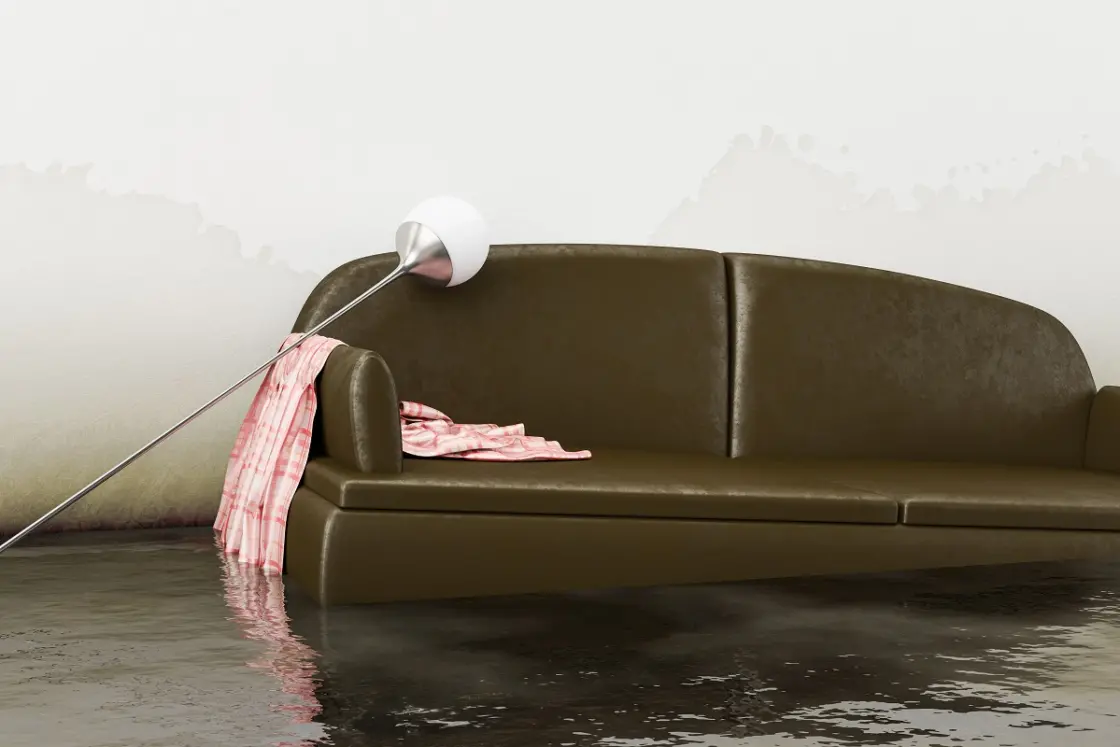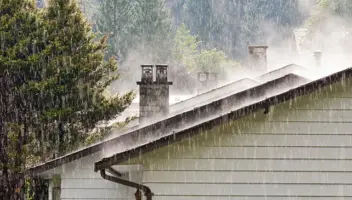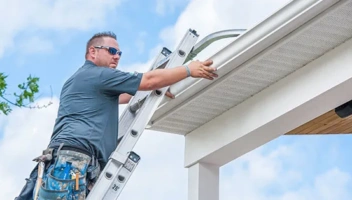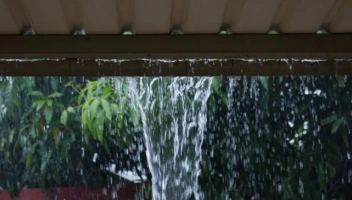Help! There’s Water in My Basement: Who To Call?

When water threatens to ruin your basement and valuable belongings, who should you turn to?
You can’t just put off solving leaky basement issues, as they tend to worsen with time. Immediate basement moisture concerns include mold growth and slimy mildew, making your home inhospitable.
When moisture levels are allowed to rise in your basement, you may find yourself dealing with other serious issues. In addition to mold, water in your basement can cause costly structural damage. Untreated basement leaks can even lead to foundation damage, jeopardizing the very integrity of your home.
If you’re ill-equipped to deal with water in your basement on your own, it’s time to call in the professionals. But, who should you call and why?
We dive into damage control details below, covering common causes of basement leaks both inside and outside your home to help you pick the right pro for the job.
In this article:
- There’s Water in My Basement, but Where Is It Coming From?
- Who Should You Call if There’s Water in Your Basement?
- Get the Help You Need the Most
- Frequently Asked Questions
There’s Water in My Basement, but Where Is It Coming From?

Before you whip out your phone, you’ll need to try and find the cause of your basement leak.
Here are a few simple causes you may be able to identify quickly and without any outside help:
Pipes
Your home’s water and sewage pipes are prime suspects for sudden leaks in your basement. If you haven’t had any extreme weather recently and your basement unexpectedly springs a leak, you should look for broken or deteriorating pipes.
Cracks
When walls begin to break down, water inevitably finds its way through them, infiltrating your basement and even causing basement flooding if not dealt with quickly enough.
These cracks could point to deeper issues with your walls or foundation. However, they may also result from improperly sealed windows and doors. Examine caulking on your basement windows for openings or signs of aging if you suspect that may be the cause.
Pressure
🌧️ Heavy rain and debris can wreak havoc on your gutters. But with LeafFilter, you can put your mind at ease! Our product is made to handle all kinds of weather and keep your gutters clear. 🌪 See how it works at: https://t.co/wRb2LmHWVN #leaffilter #gutterguards #stormproof pic.twitter.com/Eszw1gJciL
— LeafFilter Gutter Protection (@LeafFilter) June 30, 2023
Basements are underground, and the ground can be heavy—heavy enough to do damage, especially over time. Now, consider just how much heavier soil gets when it’s saturated with water.
Wet weather can double the weight pressing against your home’s walls and foundation. All that pressure can actually push water through microscopic openings in your basement’s walls if they aren’t sufficiently protected. Over time, it can cause significant damage, and more water will find its way indoors.
Who Should You Call if There’s Water in Your Basement?

The answer to this question depends on the source of your problem, so if you haven’t already identified your issue, revisit the section above.
If you’re still unsure about the exact cause of your wet basement situation, it may be best to call a general contractor to diagnose the issue for you. A contractor can help spot obscure signs of specific issues and get you on track to repair them.
Once you know what the problem is, you can apply the following recommendations.
Leaking Pipe
So, you found a pipe spewing water all over your basement? You’ll need to get in touch with a good plumber who can repair or replace a broken pipe for you.
Great plumbers can handle all kinds of leaks in a relatively short time. If anything beyond their abilities is required to restore your basement to its former glory, they can also refer you to niche service providers in the water remediation space.
Cracks in Walls
While a plumber can quickly stop a leak and replace a pipe or valve gone haywire, they won’t be much help when water enters your basement through damaged walls.
Leaking cracks in basement walls and similar issues require a structural engineer’s assistance. They can assess hidden damage and determine the best course of action to protect your home and prevent future leaks.
Penetrating Moisture
If you’re dealing with penetrating moisture and there are no cracks or major signs of structural damage to your walls or foundation, you may need a landscaping professional.
Saturated soil around your basement will often apply enough pressure against the walls to force water through tiny openings. Special coatings exist to help defend against this kind of damage, but simply diverting water away can work wonders.
Beyond this, a landscaper can regrade the soil above your basement, redirecting the water away from your walls instead of into them.
You should also consider calling in a gutter and drainage expert. They’ll be able to fix any issues your gutters, downspouts, and catch basins may be having.
Clogs inside your gutters can cause water to pour over the edge rather than flow through your gutters and downspouts. This water can pool up in certain places (like right around your basement) whenever it rains. Having LeafFilter gutter guards professionally installed can reduce your need for gutter maintenance and prevent clogs from forming inside your gutters.
Similarly, short downspouts without catch basins can thoroughly saturate soil at the corners of your foundation and exacerbate your leaky basement issues. Clogs inside your downspouts can be equally disastrous for your home.
Get the Help You Need Most
Knowing who to call when you need help in an emergency is vitally important. To determine who to call, you just need to figure out what caused the flood in the first place (or call someone who can).
Remember to pay close attention to pipes, landscaping, and your rainwater drainage systems, so that you can take preemptive action when they are at risk of failing.
A simple investment in our patented gutter protection system can keep water flowing away from your basement in heavy rain instead of compounding flooding problems.
Our award-winning gutter guards are completely enclosed and use a micromesh filter made from stainless steel to block even the smallest debris from entering your gutters. They’re guaranteed to keep your drains clog-free and are backed by our limited lifetime transferable warranty.
Call our team today at 1-800-290-6106, or get in touch via our contact form for a free quote.
Frequently Asked Questions
When should I be concerned about water in my basement?
If heavy rain storms are causing your basement to flood, then you should take it as a sign that something is wrong. Rain alone should not make your basement wet if the foundation and walls are secure and in good shape.
Clogs inside your gutters can contribute to water pooling where it shouldn’t in rainy conditions. Gutter guards can prevent debris from filling up your gutters and causing trouble without compromising your gutters’ collective capacity to capture water in a storm.
Why is there water in my basement but no leak?
Water can penetrate your basement’s walls if they are not adequately protected. This can manifest as a gradual seeping of water through pores in the walls themselves, despite there being no visible leak.
Water pooling around your basement can cause this to happen. Having LeafFilter gutter guards professionally installed is a great way to ensure your gutters are not contributing to the water entering your basement.
How do you dry out a flooded basement?
Drying out a flooded basement can be an involved process if there is a lot of water to deal with. For starters, you can pump water out with a pre-installed sump pump or an emergency pump you can obtain for this purpose.
Once most of the water has been eliminated, you can use a dehumidifier to pull moisture from the air and open windows to provide better ventilation.


